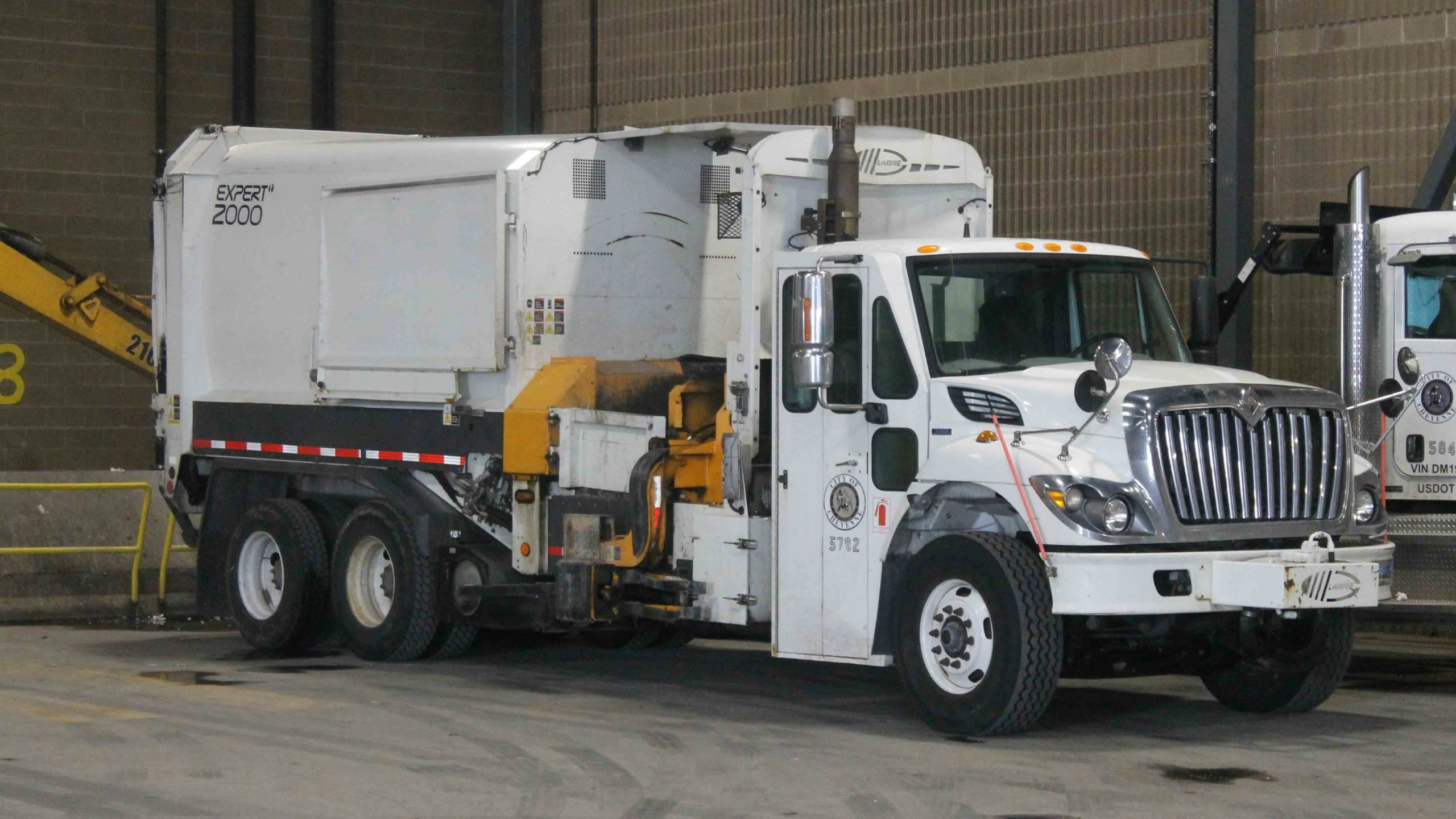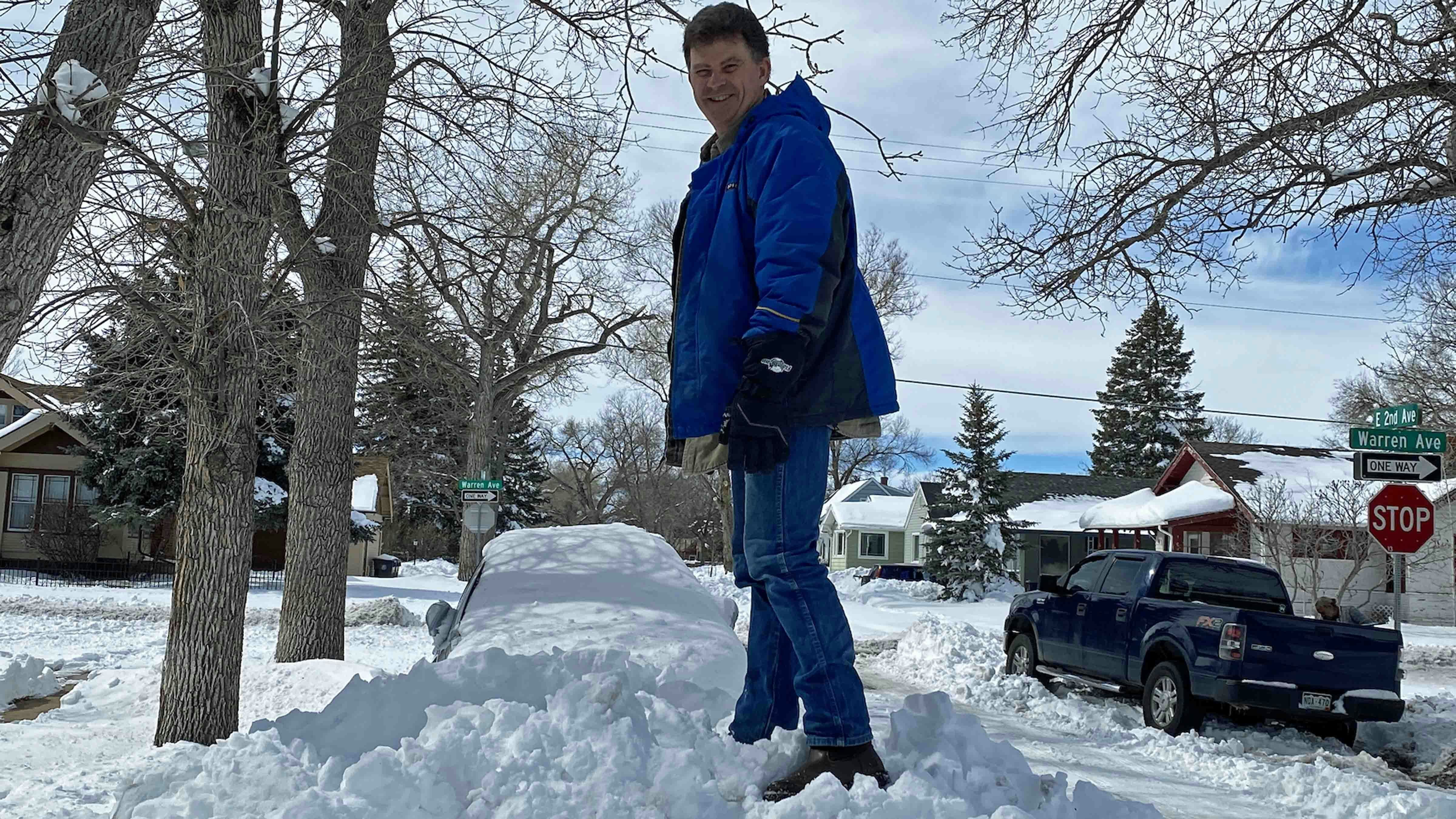Even though a shortage of garbage truck operators has drivers for Cheyenne’s Public Works Department struggling to make up for the lack of workers, longtime driver Carl Munoz keeps a good attitude about things.
Munoz has been working in the city’s public works department for 26 years and he said when the pandemic hit two years ago, drivers for the department had to begin putting in extra hours and taking on more responsibility in response to declining driver numbers.
“About a year ago, it started getting even worse,” Munoz told Cowboy State Daily on Thursday.
Munoz pointed to one main reason behind the driver shortage, at least in Cheyenne: low pay.
“A lot of people are saying that they have a (commercial driver’s license) and a job like this has a lot of responsibility,” he said. “I think they’re thinking they can go somewhere else for more money instead of putting up with something like that.
“I mean, when I started here 26 years ago, my pay was $6.35 (per hour). Now, it’s $6.36,” he continued, joking.
City Public Works Director Vicki Nemecek agreed that the city cannot compete with some wages being offered to drivers with CDLs.
She added that new federal guidelines for CDL drivers that went into place in February has also made it more difficult to get drivers in a timely manner.
The city’s Public Works Department has 112 positions that require employees to have a CDL, from solid waste transport to transit buses.
The Sanitation Division was short 10 drivers as of Wednesday, Nemecek said.
Years ago, the city helped sanitation employees like Munoz obtain a CDL with various assistance programs. Now, a person who does not have a CDL must attend an eight-week course at Laramie County Community College at a cost of almost $5,000.
Nemecek said city is in the process of bringing on a person who can train potential CDL drivers in-house rather than sending them to LCCC.
“It’s possible for the city to pay for the course, but then we’d have to set up an agreement where we pay LCCC, but we’d also have to figure out if we pay the employee too,” she said. “It’s a big taxpayer expense in order to do that, so we’ve decided the best option is to hire a trainer.”
However, the trainer can’t come onboard until at least July, after the fiscal year begins on July 1.
Munoz pointed out that the training period does not end once a person obtains a CDL. The driver has to learn the ins and outs of working in the Sanitation Division and how to operate the costly equipment while also avoiding expensive accidents at the homes of city residents.
“If this job were easy, everybody would be doing it,” he said. “The drivers who have been doing it a long time may make it look easy, because we’ve done it for a long time and know what we’re doing. I think this job can just be overwhelming to people starting out.”
But Cheyenne is not the only city, by far, seeing an issue with finding CDL drivers. The National Waste and Recycling Association said the waste and recycling industry has been experiencing a growing labor shortage over the past several years, particularly when it comes to hiring people with CDLs.
For the time being, Nemecek said the city’s Public Works Department will continue to make do with what it has, but she also asked residents to be patient with employees during this time.





